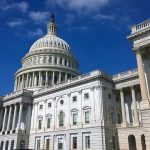At this time, China is the dominant player in the markets for active pharmaceutical components, precursor chemicals, antibiotics, and vitamins. Additionally, China produces vitamins and antibiotics.
Our adversary is the one who provided us with the medication that we are utilizing. In light of the fact that China has never been a friend, this should not come as much of a surprise; yet, it is still troubling. There will be casualties among the American population as a direct result of our dependency on their API supply networks.
In the year 2001, our nation was rocked to its core by a string of unexplained anthrax attacks that resulted in the deaths of five Americans and left a great number of others ill. In preparation for the possibility that a huge number of individuals would require treatment, the federal government hastily stocked up on hundreds of millions of doses of antibiotics. As a direct result of being coerced into seeking solutions, our nation’s leaders found themselves knocking on the door of communist China.
Because pharmaceutical companies in the United States had given up on the development of the generic antibiotic that our nation requires, government officials were compelled to turn to pharmaceutical companies located in other countries in order to acquire the medication that was so desperately required. According to the findings of an independent federal committee, both companies obtained the active pharmaceutical ingredient (API) that was necessary for the production of the finished medications from China.
The healthcare industry in the United States, most notably the market for generic medications, is currently being cast in a long and gloomy shadow by China. Generic medications are responsible for more than 90 percent of all prescriptions that are filled in the United States, whereas India is responsible for around half of this market. In spite of the fact that this may give the impression that China is not a significant player in the pharmaceutical sector, China is extensively involved in the manufacturing of the pharmaceuticals that are used in the United States. China is the source of as much as 70 percent of India’s active pharmaceutical ingredients, which puts the entire supply chain at danger.
An economics specialist recently suggested to the Chinese Communist Party that they limit the amount of life-saving pharmaceuticals that are sent to the United States. This problem impacts not just the millions of people in the United States who use antibiotics to treat bacterial and viral diseases, but everyone in the country as a whole.
It is worrisome that the United States is dependent on foreign pharmaceuticals and chemical products, but it is heartening to see that market supremacy is on its way back. USAntibiotics, a company situated in East Tennessee, was the first company in the world to manufacture amoxicillin and amoxicillin-clavulanate in the year 2021. Each year, roughly one-third of all antibiotics prescribed in the United States go to treating infections caused by these two penicillin medicines. Since 2004, several places around the world have begun manufacturing potentially life-saving medications. When the manufacturing capacity of the plant reaches its height in the years to come, it will be possible to satisfy one hundred percent of the demand in the local market. In order to prevent further loss of life, we need to consolidate our control over our pharmaceutical company and become more self-sufficient.
The United States needs more examples of businesses that have been successful, such as USAntibiotics. The faith that the American people have in their medications is not unwarranted. In order to clear up any confusion, Congress ought to investigate the various plans already in place to improve manufacturing in the United States. In a similar vein, public health programs such as Medicare and the Veterans Health Administration ought to be compelled to purchase medicines only when they are manufactured in the United States or when they come from suppliers that have been approved by the government.
These projects, which aim to revitalize antibiotic and other medication production in the United States, would be the equivalent of the Marshall Plan for the 21st century.
Due to China’s monopoly on life-saving drugs, Rep. Diana Harshbarger shared her opinion how she has trouble falling or staying asleep at night. Our reliance on drugs developed in other nations has already put our wellbeing and protection at danger, and we simply can’t afford to wait any longer for a solution. It is imperative that the political and business leaders of the United States collaborate in order to increase domestic manufacturing of active pharmaceutical ingredients (APIs) and completed drugs.




